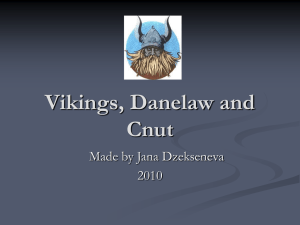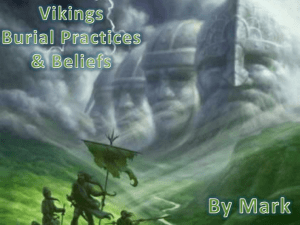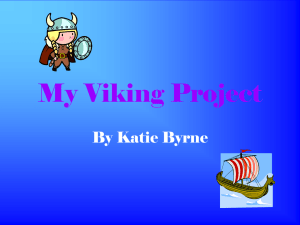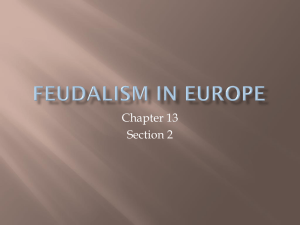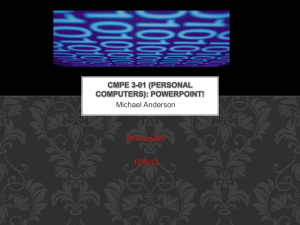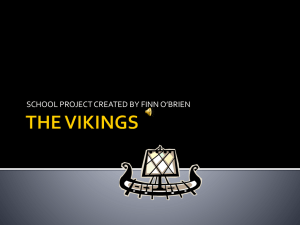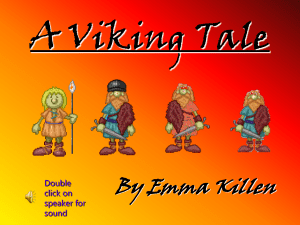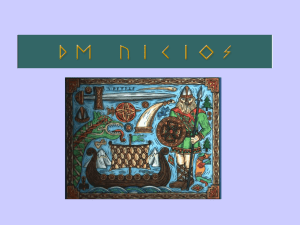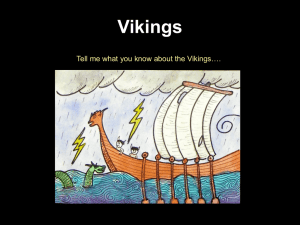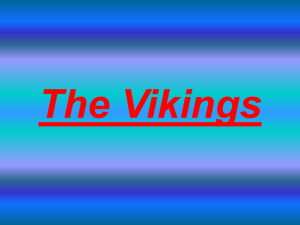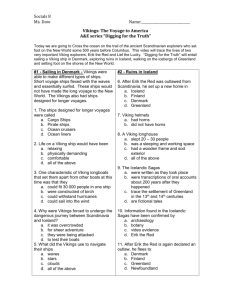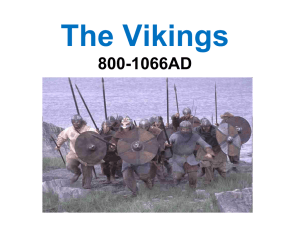The Vikings - Glencullen School
advertisement
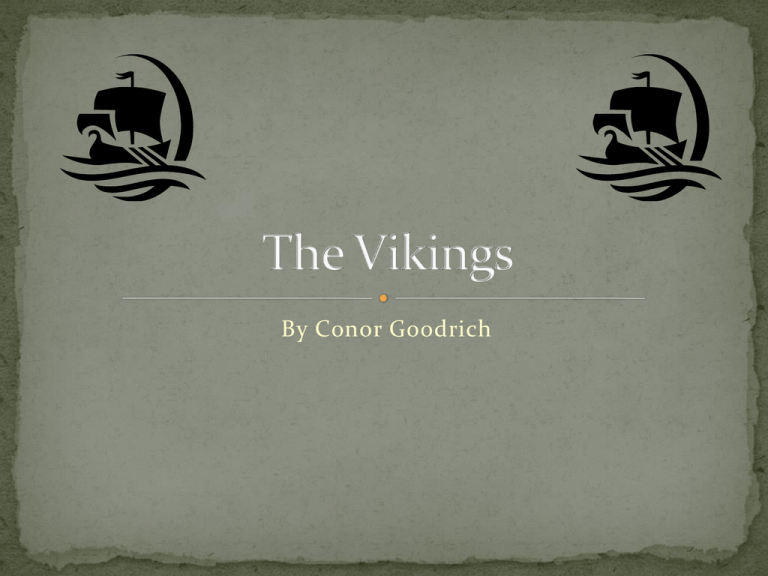
By Conor Goodrich The Vikings came from Norway, Sweden and Denmark , also known as Scandinavia. Their land was not fertile. It was rocky. They found it hard to grow crops. They travelled to Great Britain where they discovered better land and lots of treasures. The climate was much warmer than where they came from, they preferred it and wanted to settle there. The Viking age was from AD 700 to 1100. During this period many Vikings travelled to other countries, such as Britain and Ireland. Some went to fight and steal treasure. Others settled in these new lands as farmers, craftsmen or traders. The Vikings used long ships to raid and steal from other lands. The Long ships were powered by sails or by rowing with oars. The Viking long ships were made from different woods and were very effective at skimming across the surface of the waves. They used their boats for transporting cargo, trading and for exploring. The Vikings even travelled to America, they were the first Europeans there. They called America Vineland, because grapes grew there. The Vikings believed there were many different gods that lived in a place called Asgard. Odin or Woden was the god of war. He rode an eight legged horse. Loki was half god and half fire spirit. He played tricks to cause trouble. Thor was the god of thunder. He had a quick temper but was good hearted. helmet axe shield Viking weapons were heavy and strong. The blacksmith would make these as well as jewellery. The metal would be heated up and then banged into shape. To make a weapon stronger, it would be plunged into cold water. spear sword Vikings were skilled craftsmen making objects from stone, wood and metal. The blacksmiths were very well respected. Some jewellery was made especially to be buried with someone who had died. Some was made for rich people as it was the safest way to keep their wealth. Gold pendants were made to wear around the neck, some were thought to be magical charms. Sagas Viking children did not go to school so instead, lessons came in the form of Sagas or long stories. They described the adventures of great Viking warriors or gods. The Sagas were an important way to teach History, Geography and navigation. The Vikings often decorated buildings with pictures from famous sagas. Runes The Viking alphabet was called the Futhark. The letters or runes were carved into wood or stone. The runes are made of straight lines so it is easier to carve them. Most Vikings were farmers, living with their families and growing and making all the things they needed for their daily lives. Food was stored in wooden barrels and boxes. The Vikings also used wood for plates and spoons. The Vikings would build a longhouse for the family and barns for the animals. Vikings also built Smithys, which were places for them to make and mend iron tools and utensils. Viking homes were made of timber planks and woven branches, with turf or thatched roofs. In the middle of the room was an open fire set in along hearth. This gave the Vikings heat and light. The Vikings came from the three countries of Scandinavia: Denmark, Norway and Sweden. The name 'Viking' comes from a language called 'Old Norse' and means 'a pirate raid'. People who went off raiding in ships were said to be 'going Viking'. Around 500 years before Christopher Columbus ‘discovered’ the American continent, Vikings had visited its shores. The Vikings called themselves Ostmen. The largest Viking graves were found at Islandbridge and Kilmainham, Dublin. They were uncovered between 1846 and 1934. The Vikings raided all around the Irish coast. The Vikings took tradable goods, livestock, and people to sell as slaves. The Vikings ate two main meals a day, one of which usually consisted of some kind of meal or porridge. The main everyday food was the big kettle of stew containing whatever vegetables and meat were available. With no fridges or freezers Viking families had to take special measures to stop their food going bad. Like rubbing meat and fish in salt. Pan flutes: made from cow's horns, bones of sheep and other animals. Horn pipes: similar to a bagpipe without the bag. Rebec: a violinish looking instrument. Harp: used most during the Viking era. Lur: a piece of wood parted, carved out, then joined together again. Where did the Vikings come from? What does Viking mean? When did the Viking age begin? How many meals did Vikings eat a day? What did Vikings mostly make stuff from? What was Oden God of? What did the Vikings call themselves? What is a pan flute made from? What is a Rebec? END
